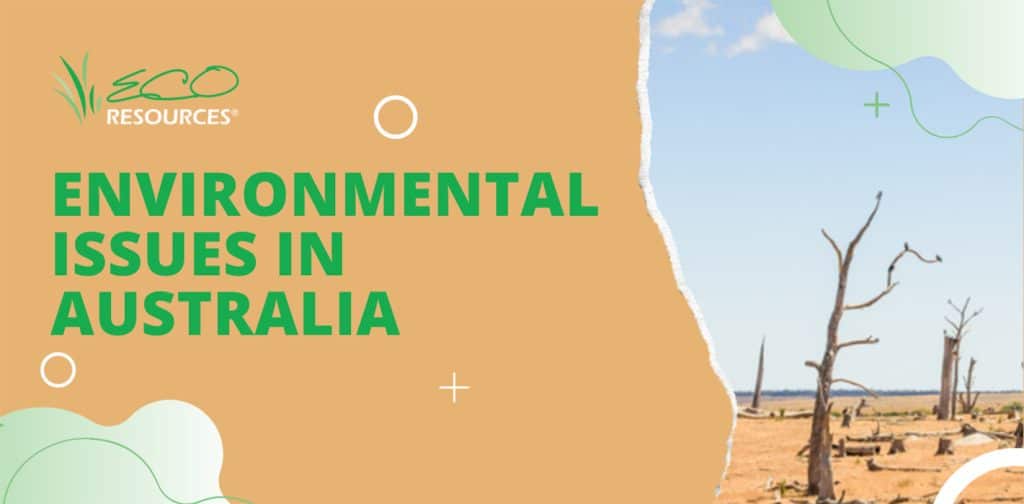

Australia, renowned for its diverse landscapes and unique biodiversity, faces a myriad of environmental challenges in 2023. From the pressing issues of renewable energy and climate change to more localised concerns such as overgrazing and bushfires, the environmental landscape demands immediate attention. Amidst these challenges, addressing environmental issues in Australia has become crucial for the sustainable future of this ecologically rich nation.
This article delves into the complexities of these challenges, exploring their implications, public sentiments, government policies, and the critical need for sustainable practices. The importance of addressing environmental concerns in Australia cannot be overstated.
The nation’s delicate ecosystems and rich biodiversity are at risk due to human activities and climate change. The repercussions extend beyond environmental degradation to impact human health, economic stability, and overall quality of life.
As revealed by various reports, Australians are increasingly concerned about the environment, with renewable energy and climate change topping the list of public priorities. Nearly half of the population identifies renewable energy as their foremost concern, reflecting a growing awareness of the need to transition towards sustainable practices.
As per several accounts, the ecological concerns in Australia in 2023 comprise:
Public awareness and demand for renewable energy solutions have surged. The population recognises the urgency of transitioning away from fossil fuels and expects the government to prioritise investments in sustainable alternatives.
Despite public demand, the Australian government’s stance has been marked by continued support for fossil fuel industries. Policies need reevaluation to align with the global shift towards renewable energy and reduce the nation’s carbon footprint.
The challenges in transitioning to renewable energy include economic considerations and resistance from traditional industries. However, embracing renewable sources presents opportunities for job creation, technological advancements, and long-term environmental sustainability.
Australia is a significant contributor to global greenhouse gas emissions, ranking among the top 20 emitters worldwide. The nation’s per capita emissions are notably high, emphasising the need for immediate action.
Public concern about climate change remains high, despite the prevailing cost-of-living crisis. Australians recognise the interconnection between environmental health and their well-being, urging comprehensive strategies to address climate-related challenges.
The Australian government’s persistent support for the expansion of fossil fuel industries raises questions about its commitment to mitigating climate change. Denying responsibility for exported emissions further complicates the path to a sustainable future.
Australia, as a global citizen, bears a responsibility to contribute meaningfully to international efforts in combating climate change. Collaborative initiatives and adherence to global agreements are imperative for effective environmental stewardship.
Overgrazing in Australia refers to the excessive consumption of vegetation by grazing animals, causing imbalances in ecosystems. This has severe consequences for biodiversity, leading to woody thickening and modifications of grasslands.
Overgrazing contributes to desertification, erosion, and the proliferation of invasive plant species. These consequences not only harm biodiversity but also pose threats to the sustainability of Australia’s ecosystems.
Research indicates that the impact of overgrazing varies across ecosystems. While it may have positive effects in species-rich rangelands, the same practice can be detrimental in species-poor drylands, common in Australia.
Achieving a balance in grazing practices is crucial for preserving biodiversity and ecosystem health. Sustainable management strategies must be implemented to address overgrazing and its far-reaching consequences.
Australia continues to grapple with the increasing frequency and severity of bushfires, exacerbated by climate change. These fires pose immediate threats to ecosystems, wildlife, and human communities.
Bushfires have devastating impacts on ecosystems, leading to habitat loss and endangering countless plant and animal species. The regenerative capacity of affected areas is often compromised, resulting in long-lasting ecological damage.
The Australian government’s response and preparedness for bushfires require continuous evaluation and improvement. Proactive measures, community engagement, and investment in firefighting capabilities are essential components of an effective strategy.
Engaging local communities in fire prevention efforts is crucial. Public awareness, education, and community-led initiatives can contribute to reducing the risk and impact of bushfires, fostering resilience in the face of these environmental challenges.
Based on multiple sources, additional significant environmental issues in Australia encompass:
Public opinion on environmental issues in Australia reflects a growing concern for the health of the nation’s ecosystems. Australians are increasingly vocal about the need for immediate action and sustainable solutions.
Renewable energy emerges as a key focus for the public, highlighting the urgency of transitioning away from fossil fuels. The public demands a more significant commitment from the government to harness clean and sustainable energy sources.
Despite the cost-of-living crisis, public concern about climate change remains high. Australians recognise the interconnectedness of environmental health and their overall well-being, emphasising the need for comprehensive strategies.
The Australian government’s continued support for fossil fuel industries contradicts public sentiment and global efforts to combat climate change. Reevaluating policies to align with sustainable practices is essential for fostering environmental responsibility.
Denying responsibility for emissions generated by exported coal and gas raises questions about Australia’s commitment to environmental stewardship. Acknowledging and addressing the impact of exported emissions is crucial for credibility on the global stage.
An evaluation of current environmental policies is imperative to identify gaps and areas for improvement. Policies must be dynamic, reflecting the evolving understanding of environmental issues and adapting to emerging challenges.
Considering the public’s strong stance on renewable energy and climate action, the Australian government should reassess its approach. Shifting towards sustainable policies, fostering innovation, and actively participating in international collaborations will position Australia as a responsible global environmental steward.
In 2023, Australia grapples with a spectrum of environmental challenges, from the urgent need for renewable energy to the critical issues of overgrazing, bushfires, and biodiversity loss. The interconnected nature of these challenges underscores the complexity of finding comprehensive solutions.
A call to action resonates throughout this discourse — a plea for sustainable practices, responsible policies, and collective efforts. Embracing renewable energy, addressing climate change, and implementing conservation measures are essential steps towards a more resilient and ecologically sustainable Australia.
Mitigating climate change requires collective responsibility. Both the public and the government must actively participate in the pursuit of sustainable solutions, fostering a harmonious coexistence between human activities and the natural environment.
The future outlook for Australia’s environment hinges on the decisions made today. Immediate action is paramount, encompassing policy shifts, public engagement, and a commitment to sustainable practices.
Australia’s environmental resilience relies on the determination to overcome current challenges and pave the way for a greener and more sustainable future. As a concrete step towards addressing environmental concerns, consider partnering with organisations like Eco Resources for responsible waste disposal Perth.
By supporting initiatives that prioritise sustainable waste management, individuals and businesses contribute to the larger goal of creating a cleaner and healthier environment. In conclusion, the environmental issues in Australia demand holistic solutions that integrate public priorities, government policies, and sustainable practices.
The path forward requires collaboration, innovation, and a shared commitment to safeguarding Australia’s natural heritage for generations to come.

Kristy Sumich is the owner and director of Eco Resources, a prominent waste management and recycling service in Western Australia. With deep industry knowledge and hands-on operational experience, Kristy is dedicated to providing sustainable solutions in waste management.
All rights reserved © Eco Resources. Website by Selling Online Made Simple. Sitemap.